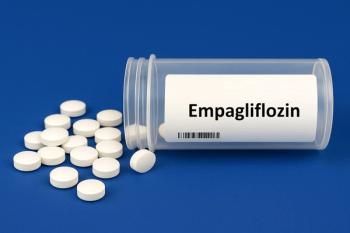
FDA Approves Sulfate-Based Tablets for Colonoscopy Preparation
The sodium sulfate, magnesium sulfate, and potassium chloride tablet gives patients an alternative to liquid-based colonoscopy preparations.
The FDA has approved a sulfate-based tablet (SUTAB, Sebela Pharmaceuticals) comprised of sodium sulfate, magnesium sulfate, and potassium chloride for preparation for colonoscopy.
The tablet offers patients and physicians a widely requested oral alternative to liquid-based colonoscopy preparations, according to Sebela’s news release.
“Gastroenterologists and their patients have repeatedly asked for a safe and efficacious tablet bowel prep. Now patients can benefit from SUTAB, thanks to Braintree’s innovative and dedicated team, who have worked tirelessly to develop this important product. SUTAB’s FDA approval underscores Braintree’s more than 35-year commitment to gastroenterology,” said Alan Cooke, president and chief executive officer of Sebela Pharmaceuticals.
Colonoscopy is the leading procedure for detecting colorectal cancer, with an estimated 19 million colonoscopies performed each year in the United States. Patients who have had difficulty preparing for their procedure in the past can now engage in an alternative to liquid bowel preparation.
Sodium sulfate, magnesium sulfate, and potassium sulfate tablets for oral use is an osmotic laxative indicated for cleansing the colon in order to prepare for colonoscopy in adults.
Approval for the sulfate-based tablet was based on results from 2 trials, 1 of which showed that 91% of patients rated the oral tablet form as very easy to tolerable to consume; 78% reported that they would use the tablets for a future colonoscopy preparation. Ninety-two percent of patients achieved successful bowel cleansing through use of the tablets, whereas 92-95% achieved successful cleaning in all segments of the colon, including the proximal colon.
“Successful bowel prep is critical for gastroenterologists to clearly see any polyps or abnormalities, yet the immense volume of liquid prep solutions can prevent patients from adequately completing their regimens. Tablets provide a welcome alternative for successful prep completion and visualization of the colon,” said Douglas K. Rex, MD, director of endoscopy at Indiana University Hospital and professor, department of medicine, division of gastroenterology and hepatology, University of Indiana School of Medicine.
Reference:
- Sebela Pharmaceuticals Receives FDA Approval for SUTAB Tablets for Colonoscopy Preparation. News Release. Sebela Pharmaceuticals; November 10, 2020. Accessed November 12 ,2020.
https://www.prnewswire.com/news-releases/sebela-pharmaceuticals-receives-fda-approval-for-sutab-tablets-for-colonoscopy-preparation-301170374.html .
Newsletter
Pharmacy practice is always changing. Stay ahead of the curve with the Drug Topics newsletter and get the latest drug information, industry trends, and patient care tips.























